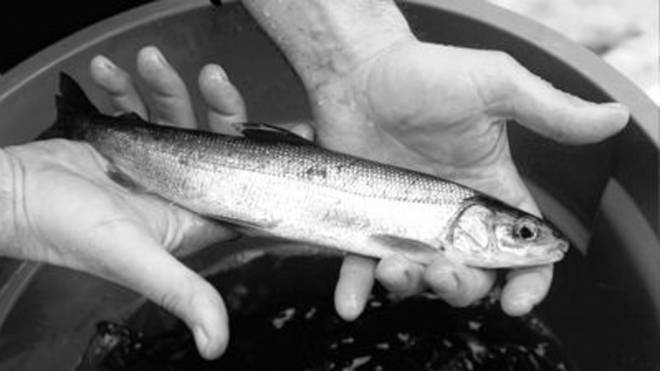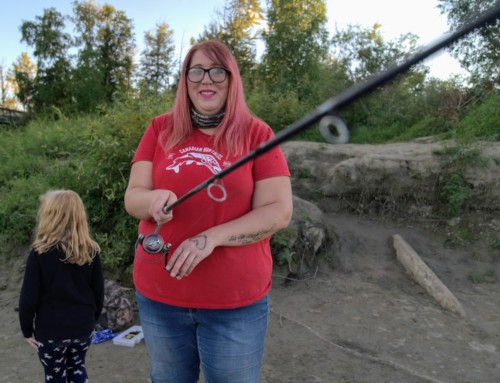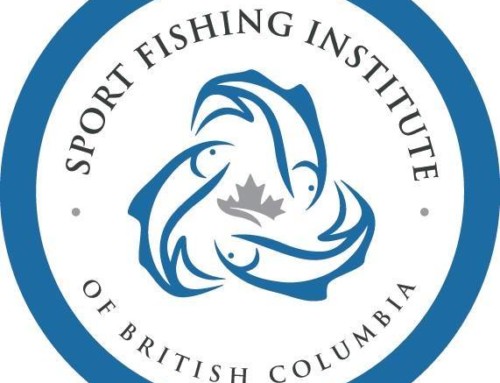Originally Published by The Chronicle Herald, January 1, 2014
BRIDGEWATER – It will be all but impossible for endangered Atlantic whitefish and salmon to make a comeback on Nova Scotia’s South Shore with the closure of a federally-owned fish hatchery, says a local fish and game advocate.
“It will be, in our opinion, impossible to recover the Atlantic whitefish and salmon stocks without this large facility,” said David Dagley, secretary of the Queens County Fish and Game Association.
The Mersey hatchery supported the recovery of the endangered Atlantic salmon and the endangered Atlantic whitefish, which is found naturally only in the Petite Riviere watershed.
The Queens County Fish and Game Association is one of a number of groups that came together to form the Mersey Bio-diversity Facility Supporters Society that is fighting to keep the federal fish hatchery open in Milton, Queens County.
Ottawa announced in 2012 it was closing the facility and the fish were removed in May 2013.
“They have (recently) gone in and taken out equipment that could be useable in other facilities,” Dagley said. He cited Coldbrook as an example, but said it’s small compared to the Mersey one and likely could never replace Mersey’s capacity.
“It was a world-class facility. Mersey was the flagship,” Dagley said.
The society has proposed to the federal fisheries department that it be allowed to run the facility, but Dagley said the only response the group has received is “procrastination from DFO. It’s been very disheartening for the volunteers who put the time and the effort into supporting salmon and salmon recovery when DFO has just not had much interest.”
Dagley said the facility is salvageable now, but if the group doesn’t get permission to run the hatchery, the ponds will be infilled with gravel and the drains and water intake pipes will be filled with cement, making it prohibitively expensive to reopen.
Department spokesman Luke Gaulton said Fisheries and Oceans Canada ceased operations at the Mersey facility in June 2013 but would not say what steps have been taken to close down the site, saying only, “The department is taking the necessary steps to return the site to Nova Scotia Power’s control.”
The hatchery sits on six hectares of land that is owned by Nova Scotia Power and leased by Fisheries and Oceans Canada.
Gaulton said if a group wanted to run the hatchery it would need to apply for certain permits, such as to transfer and introduce fish. However, privacy rules prevent Fisheries and Oceans from saying whether anyone has applied for such permits, he said.
Dagley’s association contributed $1.5 million to the hatchery through ten grants it accessed over 35 years. That money allowed Mersey to triple production by tripling the number of concrete rearing ponds. It was also used to upgrade some of the buildings and equipment.
Dagley said DFO spent a further $1.5 million in recent years on the facility.
Brad Armstrong of the Chester-based Friends of Nature Conservation Society said he sees the closure as not only wrong, but as the federal government abandoning its mandate and abdicating its legal responsibility.
“For us, we see it as the federal government breaking the law,” he said.
Armstrong said it is Ottawa’s responsibility to protect endangered species, like the Atlantic whitefish.
“How is closing this facility going to help protect that species?” he said.
“By law, they are supposed to be protected by the federal government. In my opinion, this would be the last nail in the coffin of this species and that’s just irresponsible of the government.”
He said the hatchery’s closure will have “far-reaching implications for the whole biodiversity of this system.”
Salmon from the facility were released into such rivers as the LaHave, Gold, Mersey and East rivers. “They’re in critical condition now. There’ll never be a commercial sport fishery now and the salmon sports fishery can be a huge asset to an area,” Armstrong said.
Provincial Fisheries and Aquaculture Minister Keith Colwell said in December the province will not take over the fish hatchery.
Dagley said DFO operates 26 hatcheries in British Columbia and none have been closed in the last 20 years. Since 1996, the department has closed eight of its 10 facilities in Nova Scotia, New Brunswick and P.E.I.







